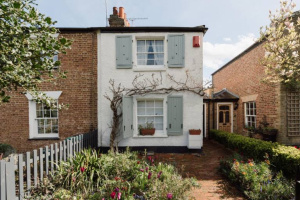Average London asking prices increase by almost £20k in October
 An October increase of 4.3% or less would have meant London prices fell year-on-year. However, the 18,497 sellers who came to the market in the last month increased their average asking prices by 5% compared to sellers in the previous month. This is a normal reaction to the start of the autumn selling season after the summer holiday period. New sellers and their estate agents have an inbuilt instinct to increase prices every October – which has happened in London every year since 2002. Their behaviour has not changed since the credit crunch, and while the Lehman Brothers collapse in September 2008 held the October rise down to just 0.3%, last October saw a spike of 6.5%. This illustrates how firmly the expectation of rising property prices is embedded in the home owner psyche in the capital.
An October increase of 4.3% or less would have meant London prices fell year-on-year. However, the 18,497 sellers who came to the market in the last month increased their average asking prices by 5% compared to sellers in the previous month. This is a normal reaction to the start of the autumn selling season after the summer holiday period. New sellers and their estate agents have an inbuilt instinct to increase prices every October – which has happened in London every year since 2002. Their behaviour has not changed since the credit crunch, and while the Lehman Brothers collapse in September 2008 held the October rise down to just 0.3%, last October saw a spike of 6.5%. This illustrates how firmly the expectation of rising property prices is embedded in the home owner psyche in the capital.
Miles Shipside, director of Rightmove, comments: “Every year, vendors coming to market after the summer holidays hope to take advantage of any positive price impetus from buyers who are keen to be in a new home before Christmas. Between 2007 and 2009, October sellers tried higher prices in spite of the ‘credit crunched’ housing market, and it’s a habit that is proving hard to kick in the ‘spending review’ market of October 2010. It’s not likely to be a successful tactic, though it is a sign that many sellers are not experiencing high levels of financial stress but can’t afford to accept a lower price if they are to make their sums stack up for the next move”.
A key question for sellers will be whether they will be missing out on early buyer interest by dropping prices once their property is on the market. Research from Rightmove this month shows how the number of webpage views a property receives in the first week of coming to market is double that of the second and third weeks combined.
Shipside adds: “Some estate agents are showing a much stiffer resolve than others about the prices they are recommending. For some agents and sellers there is the temptation to initially launch to the market at a speculative price, knowing one can always reduce it later. Given rising stock levels in some parts of London and some signs of a tempering of buyer appetite, such a strategy stands less chance of success than a few months ago.”
From a national perspective, the government’s Comprehensive Spending Review is likely to have a negative effect on housing market sentiment and consequently challenge further any perception of pricing power among sellers. However, due to the international origins of many buyers in the capital, the better-heeled locations are likely to be less susceptible.


